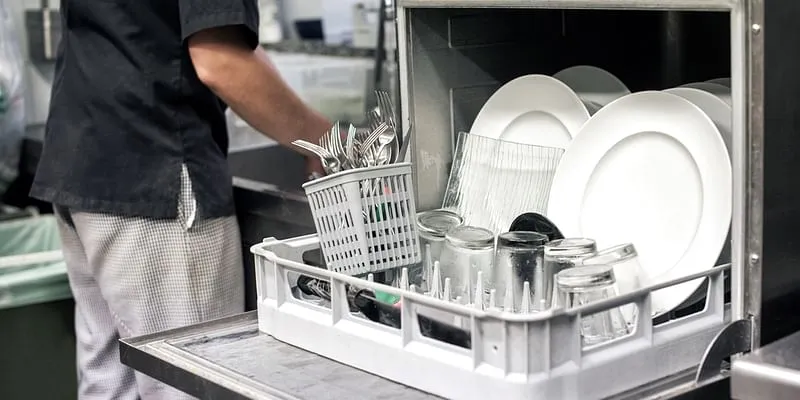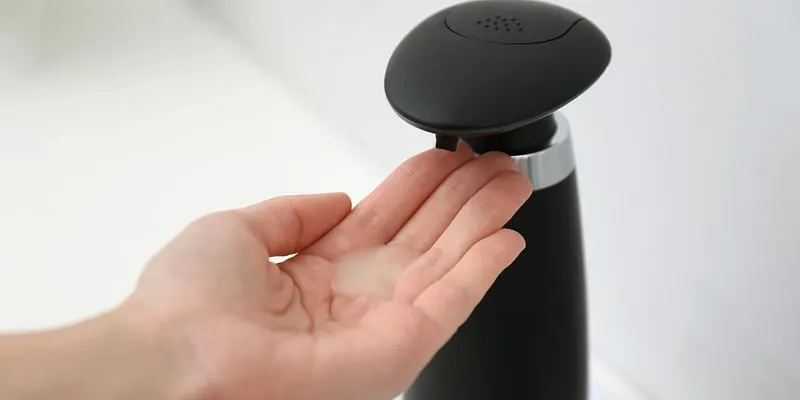10 small business ideas that require low investment to succeed during COVID-19
The COVID-19 pandemic has been a bane for most of the industry, but also a boon for many. Increased hygiene concerns and demand for healthcare products such as gloves and masks have encouraged entrepreneurs to start looking at some of these industries.

India has been reporting a record number of increase in coronavirus cases every day. Delhi and Mumbai have been worst-hit.
The pandemic has bludgeoned economies worldwide, and the smallest of businesses have felt the pressure. Still, just as every war has a winning and a losing side, some companies actually managed to thrive because of the spread of the coronavirus.
The underserved personal hygiene market has come out at the top of the pandemic as demand for items that could prevent a coronavirus infection such as masks, PPE suits, gloves, and hand sanitisers rose.
Edtech or the online learning space grew as well, thanks to students being mandated to stay home, and others taking the time to upskill themselves after they realised they had more time on their hands than before.
Here’s a list of 10 such small businesses that have been thriving, or were started since the pandemic began:
Masks

The demand for masks skyrocketed after medical communities around the world said they were an important preventive measure to mitigate the spread of the virus.
The spike in demand for masks led small-scale entrepreneurs to set up or pivot to manufacturing masks by investing very little money ranging within Rs 20,000-Rs 30,000.
The onset of the COVID-19 pandemic led Mumbai-based Saral Designs founders to repurpose its sanitary napkin-making machine to manufacture masks. The company pivoted its fully-automatic machine to produce 3-ply surgical masks. The machine can produce 40 masks per minute.
Surgical gowns

One of the main products included in PPE kits, surgical gowns saw a spike in demand during the pandemic. Many businesses set up production units to manufacture surgical gowns, especially for the healthcare community.
There are many garment enterprises that tweaked their production lines to manufacture surgical gowns in an effort to meet domestic as well as global demands.
According to Invest India, the Personal Protective Equipment (PPE) market has disrupted the global supply chain, and India sees it as a Rs 7,000 crore industry in the making. The country has been producing nearly 4.5 lakh PPE kits every single day, including gloves, goggles, face shields, gowns, head covers, and shoe covers.
Setting up a micro surgical gown production line can cost up to Rs 40,000.
Disposable gloves

For many people, including doctors and other healthcare practitioners, wearing medical gloves has become essential to avoid coming in contact with the highly-contagious coronavirus. Gloves have also been playing an important role in preventing infection via contact with surfaces.
The basic raw materials required to set up a manufacturing facility for disposable gloves include - mould, latex, chlorine, among others, and a capital under Rs 50,000.
Hand sanitiser

Demand for hand sanitisers has risen 100x since the pandemic began. Most companies have been easily able to pivot to manufacturing this product, especially after existing brands struggled to keep up with the pace of consumption.
The internet has been rife with stories about alcohol, cosmetic, skincare, and even agro-chemical companies adding hand sanitisers to their product line.
The spike in the demand for hand sanitisers has created business opportunities for many entrepreneurs. In an interaction with SMBStory, Vikas Bagaria, Founder, says,
“Taking into account the present crisis, we began production of alcohol-based hand sanitisers RahoSafe in February 2020 and our first line of production came out on March 2, 2020. It was surprising that in just 18 days, we clocked our last year’s annual turnover of Rs 6 crore. This is the kind of demand this product has created for itself in the present scenario.”
Soap

Soap is one of the most effective ways to kill the COVID-19 virus on the skin. The WHO has advocated washing hands with soap for at least 20 seconds to fully eliminate traces of the virus from the skin.
People have been setting up small factories at home with an investment of as low as Rs 20,000, experimenting with Ayurvedic herbs, and special ‘anti-viral’ ingredients to sell soaps, even though health authorities have said any soap that lathers well does the job.
Dishwasher

Consumption habits have definitely changed since the lockdown with more and more people striving to conserve cash in the wake of mass layoffs and pay cuts. Still, an absence of domestic help has sent people clamouring for machines that can take some of the load off while doing household chores.
Dishwashers – used for cleaning dishware and cutlery – have seen a spike in demand from households, and while there are many big companies that already manufacture such machines, startups have been dipping their toes in this sector to come up with innovative products more suited for Indian households.
Tissue paper/toilet roll

Tissue paper and toilet rolls went out of stock within minutes in some places after the lockdown was announced. With restrictions on mobility, people started hoarding these two items, and manufacturers had to work overtime to keep up with the demand.
Increased awareness of health and hygiene also boosted demand, and businesses that were forced to suspend activities for some time took to manufacturing these two items to keep some sort of revenue coming in. The tissue paper and toilet roll business can be started with an investment of Rs 20,000-Rs 30,000.
Touchless dispensers

Touchless dispensers aren’t new to the market, but they were mostly found at high-end places. To prevent multiple people from touching the same surfaces, touchless dispensers are being employed widely.
Several entrepreneurs have pivoted to explore this business opportunity, and many small-scale companies have either set up a proprietary firm or partnered with each other to explore the touchless dispenser space.
Panipat-based Shree Shakti Enterprise was also compelled to innovate in order to survive the crisis. The company started building products that could come in handy in the present COVID-19 situation. From sensor-based sanitiser dispensers to hands-free hand wash systems and automatic foot sanitisers, Shree Shakti ventured into uncharted territory.
Shree Shakti has also received 850+ orders from various industries, public and government institutions, including Hero Moto Corp, Wipro, Mohalla Clinics, the Ministry of Home Affairs, CRPF, BSF, police stations, and political parties. This has allowed the company to avoid job cuts and gross Rs 1.15 crore in sales through the lockdown.
Ayurvedic snacks

Best known for advocating the use of naturally healing and immunity-boosting herbs, Ayurveda is an Indian medicinal legacy that has shown clinical promise.
Indian entrepreneurs have been able to tap this ancient practice and give it a somewhat modern twist by coming up with herbal teas, ayurvedic snacks, juice shots infused with herbs, among others.
The Ayurvedic snacks business can be started with an investment under Rs 50,000.
Online tutorials/Edtech

The edtech sector has shown a lot of promise during the coronavirus pandemic, especially since it has forced people to become more tech-savvy and a little less intimidated by the concept of online education.
These platforms have seen a manifold rise in the number of users almost overnight, and helped a largely tech-illiterate population get a glimpse of what the future of education could look like.
Paid online tutorials, masterclasses, webinars, and online workshops have also become popular, and many self-starters have used this option to build a name for themselves.
Edited by Aparajita Saxena






1553509983209.png?mode=crop&crop=faces&ar=1%3A1&format=auto&w=1920&q=75)


